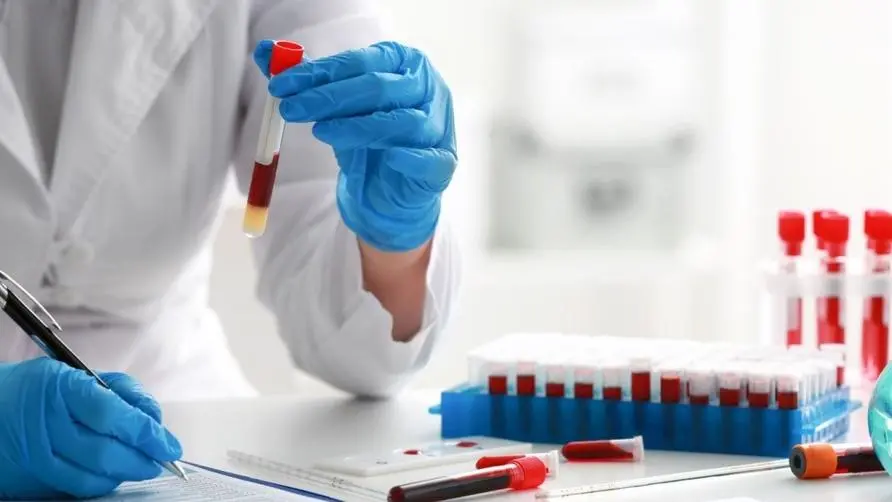The disease rate is lower than the chance of being struck by lightning! Vulnerable cancer "Waldenstrom's macroglobulinemia" welcomes the dawn: health insurance supports new generation drugs

The disease rate is lower than the chance of being struck by lightning! What is Waldenstrom’s macroglobulinemia?
Waldenstrom’s Macroglobulinemia (WM) is a very rare malignant type of lymphoma. Due to the small number of patients and limited treatment options, it is not an exaggeration to describe Waldenstrom’s macroglobulinemia as a “vulnerable cancer”. It was not until December this year that the new generation of oral target drugs BTK inhibitors (BTKi) were officially included in health insurance benefits, finally giving patients and their families a glimmer of hope.
In Taiwan, there are less than 50 new cases of Waldenstrom’s macroglobulinemia every year, and the prevalence rate is only about four per million, which is more than a hundred times lower than a person’s chance of being struck by lightning in a lifetime. The five-year survival rate of high-risk groups is only There are 36%. With few clinical cases and elusive initial symptoms, patients feel like they are trapped in a maze during the diagnosis process, flitting between different departments. It is easy for patients to miss diagnosis or misdiagnosis, and miss the opportunity to prescribe the right medicine.
There are many elderly patients and treatment is difficult! Doctors reveal high-risk groups for Waldenstrom’s macroglobulinemia
Chemoimmunotherapy is the first-line treatment for Waldenström’s macroglobulinemia, but its effect is limited and accompanied by high toxicity. It may lead to cytopenia and reduced immunity in patients, which may lead to side effects such as infection and herpes zoster attacks. Zhang Zhengxiong, director of the Changhua Campus Cancer Hospital of Xiu Chuan Medical System, pointed out that patients over 65 years old and with abnormal biochemical indicators are considered a high-risk group, and their condition deteriorates faster than the general patients with Waldenstrom’s macroglobulinemia.
President Zhang Zhengxiong pointed out that elderly people often suffer from cardiovascular and other comorbidities, and treatment strategies should not only actively deal with them, but also pay attention to the safety of medication. Looking back on past experience, President Zhang Zhengxiong once encountered an elderly patient who suffered from pulmonary infection due to chemotherapy and almost died of the disease. Professional doctors are strongly urged to fully consider the disease progression rate and comorbid conditions of high-risk groups when formulating treatment strategies, and they may not be able to tolerate chemotherapy.
A new generation of oral targeted drugs “BTK inhibitors” are eligible for health insurance benefits and are expected to change the fate of patients
Huang Taizhong, Secretary-General of the Society of Hematology of Taiwan, pointed out that although cancer medicine has made significant progress in the past few decades, some rare cancers face challenges such as difficulty in making progress in clinical trials due to the small number of patients, easy missed or misdiagnosed, and lack of dedicated drugs. It is the extremely weak among the weak. Many patients with Waldenstrom’s macroglobulinemia are elderly people over 65 years old. They are often frail and relatively weak in social participation and economic activities. As a result, many patients’ treatment rights were ignored in the past, making it difficult for them to receive active treatment.
The Hematology Society of Taiwan has long been committed to the education and experience exchange of medical staff, and assists in the payment of new drugs to reduce the burden on patients and their families. The overall survival rate of WM patients in the past decade has been less than 50%. I believe that as new generation treatments are incorporated into the health insurance system and more diversified treatment strategies are provided to patients, the fate of these vulnerable cancer patients will be turned around.
The incidence rate of malignant lymphoma has increased by 1.4 times in ten years. 8 major symptoms appear and last for 3 weeks. Seek medical attention immediately.
Secretary-General Huang Taizhong pointed out that according to the latest 2021 Taiwan Cancer Registration Report released by the Taiwan Health Promotion Administration, the incidence rate of malignant lymphoma has increased 1.4 times compared with ten years ago, reaching 4,261 people per year, while “non-Hodgkin lymphoma (NHL)” has jumped to the tenth place among the top ten cancers in men and women. Lymphoma is different from other solid tumors in that it is formed by systemic canceration of lymphocytes. This characteristic makes it possible for patients to initially detect lesions in different locations throughout the body, making early diagnosis more difficult.
Secretary-General Huang Taizhong called on people to seek treatment at the Department of Hematology and Oncology as soon as possible when they experience common symptoms of lymphoma such as fever, night sweats, unexplained weight loss, fatigue, swollen lymph nodes, and itchy skin that last for about two to three weeks.
As Ms. Chen’s attending physician, Dr. Zhang Zhengxiong also shared his many years of experience in the diagnosis and treatment of Waldenstrom’s macroglobulinemia, and specifically added the harm that “hyperviscosity syndrome (HVS)” brings to patients, such as anemia or abnormal bleeding, due to Neuropathy causes specific symptoms such as numbness.
Dean Zhang Zhengxiong explained that macroglobulin refers to the excessive proliferation of immune globulin (IgM) in the patient’s body, which causes the blood to become sticky. When the IgM concentration exceeds 4000mg/dl or the serum concentration is higher than 4CP, multiple abnormal mucosal bleeding may occur. Clinically, 20-30% of patients may develop neurological lesions, such as blurred vision or loss, headache, dizziness, nystagmus, tinnitus or sudden hearing loss; severe cases may even cause confusion, dementia, stroke or coma .
Through IgM gene testing, bone marrow aspiration and biopsy, malignant lymphoma or other blood diseases can be identified at an early stage, which will help to formulate a WM treatment plan early. He specifically mentioned that the current bone marrow examination is completely different from everyone’s imagination of “drawing bone water”. The technology is very sophisticated and can be completed in less than half an hour in the outpatient clinic. It is the fastest way to diagnose blood cancer diseases. We urge patients not to miss the opportunity for early diagnosis and treatment due to myths about examinations.
Waldenstrom’s macroglobulinemia drug “BTKi” has been paid. Taiwan’s treatment is currently “catching up with Britain and the United States”
The current international treatment policy for Waldenstrom’s macroglobulinemia is mainly based on new targeted drugs. The treatment of Waldenstrom’s macroglobulinemia in Taiwan has caught up with the guidelines of the US National Comprehensive Cancer Network (NCCN) and the UK’s National Institute for Health and Care Excellence (NICE). According to this advanced care guideline, when patients do not respond well to first-line drugs, they should be actively evaluated for switching to highly tolerable target drugs.
Wu Huiru, chairman of the Taiwan All-Cancer Patient Network, said she was excited about the new targeted drugs being included in health insurance benefits; statistics on the top 10 medical expenditures of various types of cancer health insurance in 2022 show that non-Hodgkin’s lymphoma (NHL) per capita medical expenses The cost of cancer ranks fourth among the top ten cancers, and drug costs exceed lung cancer, the leading cause of cancer death.
What is gratifying is that with the joint efforts of the National Health Insurance Department and all sectors of society, it only took 519 days from application to payment of the new generation BTKi (shorter than the average 726 days for anti-cancer drugs to take effect), which means that patients’ needs are more widely recognized. Pay attention to. We hope that future health insurance policies will provide more in-depth support for vulnerable cancers, provide more advanced treatment opportunities, and at the same time reduce the financial burden on patients and their families.
Extended reading:





